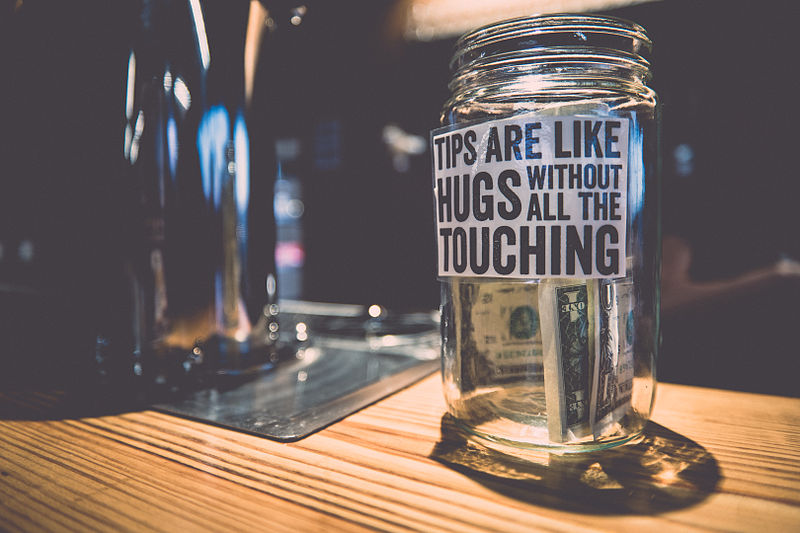Some American hospitality companies are experimenting with banning tipping and raising staff wages instead.
Minimum wages are supposed to ensure that everybody who works earns enough to live. For as long as they’ve been around, people have disagreed over how high the minimum wage should be (and even whether there should be one).
But you’d probably struggle to find anyone who thinks someone in the USA could live on £1.65 an hour, which is the US government’s minimum wage for some workers. For comparison, the UK’s hourly minimum wage for over-25-year-olds is £8.21.
The reason this minimum wage is so low is that the government expects the workers being paid it - usually hospitality staff - to also receive tips from their customers. Indeed, they expect customers to tip enough to put the employee’s average hourly wage up to at least £5.63. (If they don’t, the employer has to cover the difference.) That’s why when you go out to eat and drink in the States you’re heavily encouraged to tip, and tip well.
Paying people in this way, however, throws up a host of problems. Wages can vary wildly each month, and the unpredictability makes it hard for workers to budget. Staff feel like they have no choice but to appease badly behaved and abusive customers, and customers feel guilted into tipping even if the service they received was poor.
Perhaps most worryingly, the tipping system creates big wage inequalities. Implicit or explicit prejudice means customer-facing staff often receive different amounts of tips than their colleagues of different races, genders, nationalities or sexualities. And workers who don’t deal with customers get zero tips directly, and subsequently often end up making much less money.
Because of these problems, some businesses are trying out banning tips. Instead, they uniformly up all staff wages and pay for the raise by increasing the prices they charge customers. But this system causes problems of its own. Restaurants who tried it said their diner numbers went down, as people were put off by the higher food prices. And wait staff who had previously got the most tips hated the change - and often quit - because while many of their back-of-house colleagues were getting paid more, their own salary decreased.
Read our explainer on: minimum wages.

